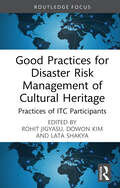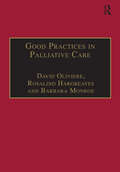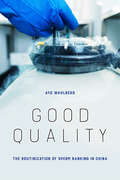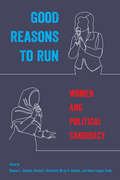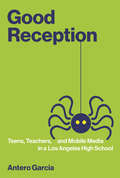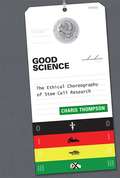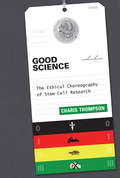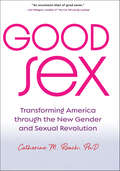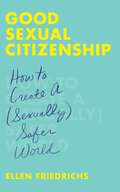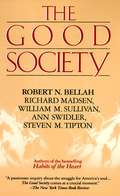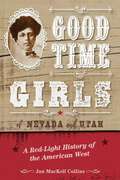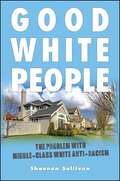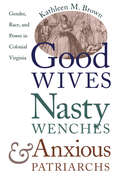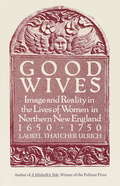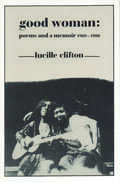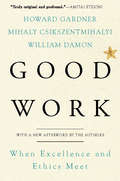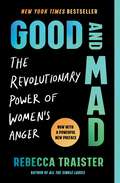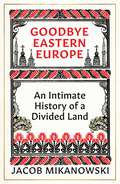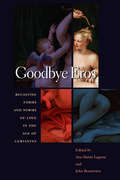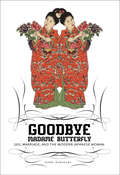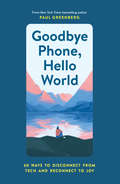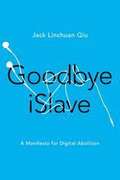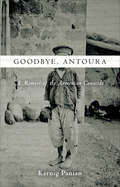- Table View
- List View
Good Practices for Disaster Risk Management of Cultural Heritage: Practices of ITC Participants (Routledge Studies in Hazards, Disaster Risk and Climate Change)
by Rohit Jigyasu Dowon Kim Lata ShakyaThis book is a selection of case studies undertaken by cultural heritage and disaster risk management professionals across the world demonstrating good practices for disaster risk management of cultural heritage. The readers will learn about the practical application of various methodologies, tools, and techniques for disaster risk assessment, mitigation, preparedness, response, and recovery of cultural heritage. They will also learn about the application of traditional knowledge and engagement of communities for disaster risk management of cultural heritage. This will help relevant organisations and professionals to develop and implement projects in this field. The intended audience for this book are Practitioners or site managers of cultural heritage sites and museums. Also, researchers and students studying disaster risk management of cultural heritage. The book will also be of interest to disaster risk management institutions at the urban, regional or national level/cultural heritage management institutions at the urban, regional or national level/city administration, municipalities, urban local bodies and planning departments/educational and research institutions which have specialised programmes in engineering, planning, disaster risk management, and conservation of cultural heritage.
Good Practices in Palliative Care: A Psychosocial Perspective
by David Oliviere Rosalind HargreavesA team of two practitioners in psychosocial palliative care and an academic have drawn together the work of twenty-eight highly experienced practitioners. Good Practices in Palliative Care : a psychosocial perspective provides detailed descriptions of innovatory practices and how they were developed, together with clear practice principles. This unique contribution to palliative care literature is suitable for a wide range of health and social care professionals at student and experienced levels and is written in a user-friendly style.
Good Quality: The Routinization of Sperm Banking in China
by Ayo WahlbergFrom its crude and uneasy beginnings thirty years ago, Chinese sperm banking has become a routine part of China’s pervasive and restrictive reproductive complex. Today, there are sperm banks in each of China’s twenty-two provinces, the biggest of which screen some three thousand to four thousand potential donors each year. Given the estimated one to two million azoospermic men--those who are unable to produce their own sperm--the demand remains insatiable. China’s twenty-two sperm banks cannot keep up, spurring sperm bank directors to publicly lament chronic shortages and even warn of a national ‘sperm crisis’ (jingzi weiji). Good Quality explores the issues behind the crisis, including declining sperm quality in the country due to environmental pollution, as well as a chronic national shortage of donors. In doing so, Wahlberg outlines the specific style of Chinese sperm banking that has emerged, shaped by the particular cultural, juridical, economic and social configurations that make up China’s restrictive reproductive complex. Good Quality shows how this high-throughput style shapes the ways in which men experience donation and how sperm is made available to couples who can afford it.
Good Reasons to Run: Women and Political Candidacy
by Dawn Langan Teele Shauna L. Shames Rachel I. Bernhard Mirya R. HolmanAfter the 2016 U.S. Presidential election, a large cohort of women emerged to run for office. Their efforts changed the landscape of candidates and representation. However, women are still far less likely than men to seek elective office, and face biases and obstacles in campaigns. (Women running for Congress make twice as many phone calls as men to raise the same contributions.) The editors and contributors to Good Reasons to Run, a mix of scholars and practitioners, examine the reasons why women run—and do not run—for political office. They focus on the opportunities, policies, and structures that promote women’s candidacies. How do nonprofits help recruit and finance women as candidates? And what role does money play in women’s campaigns? The essays in Good Reasons to Run ask not just who wants to run, but how to activate and encourage such ambition among a larger population of potential female candidates while also increasing the diversity of women running for office.
Good Reception: Teens, Teachers, and Mobile Media in a Los Angeles High School (Digital Media and Learning)
by Antero GarciaA year in the life of a ninth-grade English class shows how participatory culture and mobile devices can transform learning in schools. Schools and school districts have one approach to innovation: buy more technology. In Good Reception, Antero Garcia describes what happens when educators build on the ways students already use technology outside of school to help them learn in the classroom. As a teacher in a public high school in South Central Los Angeles, Garcia watched his students' nearly universal adoption of mobile devices. Whether recent immigrants from Central America or teens who had spent their entire lives in Los Angeles, the majority of his students relied on mobile devices to connect with family and friends and to keep up with complex social networks. Garcia determined to discover how these devices and student predilection for gameplay, combined with an evolving “culture of participation,” could be used in the classroom.Garcia charts a year in the life of his ninth-grade English class, first surveying mobile media use on campus and then documenting a year-long experiment in creating a “wireless critical pedagogy” by incorporating mobile media and games in classroom work. He describes the design and implementation of “Ask Anansi,” an alternate reality game that allows students to conduct inquiry-based research around questions that interest them (including “Why is the food at South Central High School so bad?”). Garcia cautions that the transformative effect on education depends not on the glorification of devices but on teacher support and a trusting teacher-student relationship.
Good Science
by Charis ThompsonAfter a decade and a half, human pluripotent stem cell research has been normalized. There may be no consensus on the status of the embryo -- only a tacit agreement to disagree -- but the debate now takes place in a context in which human stem cell research and related technologies already exist. In this book, Charis Thompson investigates the evolution of the controversy over human pluripotent stem cell research in the United States and proposes a new ethical approach for "good science." Thompson traces political, ethical, and scientific developments that came together in what she characterizes as a "procurial" framing of innovation, based on concern with procurement of pluripotent cells and cell lines, a pro-cures mandate, and a proliferation of bio-curatorial practices. Thompson describes what she calls the "ethical choreography" that allowed research to go on as the controversy continued. The intense ethical attention led to some important discoveries as scientists attempted to "invent around" ethical roadblocks. Some ethical concerns were highly legible; but others were hard to raise in the dominant procurial framing that allowed government funding for the practice of stem cell research to proceed despite controversy. Thompson broadens the debate to include such related topics as animal and human research subjecthood and altruism. Looking at fifteen years of stem cell debate and discoveries, Thompson argues that good science and good ethics are mutually reinforcing, rather than antithetical, in contemporary biomedicine.
Good Science: The Ethical Choreography of Stem Cell Research (Inside Technology)
by Charis ThompsonAn examination of a decade and a half of political controversy, ethical debate, and scientific progress in stem cell research.After a decade and a half, human pluripotent stem cell research has been normalized. There may be no consensus on the status of the embryo—only a tacit agreement to disagree—but the debate now takes place in a context in which human stem cell research and related technologies already exist. In this book, Charis Thompson investigates the evolution of the controversy over human pluripotent stem cell research in the United States and proposes a new ethical approach for “good science.” Thompson traces political, ethical, and scientific developments that came together in what she characterizes as a “procurial” framing of innovation, based on concern with procurement of pluripotent cells and cell lines, a pro-cures mandate, and a proliferation of bio-curatorial practices.Thompson describes what she calls the “ethical choreography” that allowed research to go on as the controversy continued. The intense ethical attention led to some important discoveries as scientists attempted to “invent around” ethical roadblocks. Some ethical concerns were highly legible; but others were hard to raise in the dominant procurial framing that allowed government funding for the practice of stem cell research to proceed despite controversy. Thompson broadens the debate to include such related topics as animal and human research subjecthood and altruism. Looking at fifteen years of stem cell debate and discoveries, Thompson argues that good science and good ethics are mutually reinforcing, rather than antithetical, in contemporary biomedicine.
Good Sex: Transforming America through the New Gender and Sexual Revolution
by Catherine M. RoachThe United States may have a puritanical past, but the 21st century is wide open to diverse gender expression and romance. Good Sex is the manifesto—or Manisexto, if you will—for this cultural revolution. Same-sex marriage is legal, the #MeToo movement has exploded, colleges nationwide now teach consent-based sexual health, the media celebrates body positivity, and transgender visibility has become mainstream. Defining "good sex" as both ethical and pleasurable, Catherine M. Roach features such topics as equity, intersectionality, and shared pleasure while offering a lively discussion that is inclusively feminist, queer-friendly, and sex-positive without being divisive.An accessible guidebook, Good Sex provides hope that America's sexual, gender, and racial injustices can be addressed together. After all, this new gender and sexual revolution strengthens the pursuit of happiness and love. Welcome to the revolution!
Good Sexual Citizenship: How to Create a (Sexually) Safer World
by Ellen FriedrichsMost of us want to be decent people in the world. Yet when it comes to sex, we so often stumble and contribute to sexual injustice. Think about it: are we really still blaming victims of sexual assaults? Can it truly be that there is a gender based orgasm gap? Are we actually labeling people based on the kind of sex they do or don&’t have? Why do we insist on questioning if sex is consensual when someone&’s passed out drunk? Our society is undergoing an evolution, and we should take this as a call to action to ensure that all people, regardless of gender identity, sexual orientation, ability, age, ethnicity, race, religion, or social class, are treated as humans worthy of respect. Good Sexual Citizenship asks us all to break down sexual hostility and build up something better. To promote understanding and empathy, Friedrichs includes a factual and historical backdrop covering gender disparities, women&’s rights, sexual violence, prevention, and sex education, and challenges readers to use this insight, along with guided exercises, to examine their own potential for &“good sexual citizenship.&” Covering topics like consent, sexual assault, pleasure, double standards, casual sex, hook-up culture, and teen sex, she provides us with tools to navigate societal messages, sexually hostile climates, stereotypes, and outdated mentalities.
Good Society
by Ann Swidler Richard Madsen William Sullivan Robert Bellah Steve TiptonTHE GOOD SOCIETY examines how many of our institutions- from the family to the government itself- fell from grace, and offers concrete proposals for revitalizing them.From the Trade Paperback edition.
Good Time Girls of Nevada and Utah: A Red-Light History of the American West
by Jan MacKell CollinsAs settlements and civilization moved West to follow the lure of mineral wealth and the trade of the Santa Fe Trail, prostitution grew and flourished within the mining camps, small towns, and cities the nineteenth-century Nevada and Utah. Whether escaping a bad home life, lured by false advertising, or seeking to subsidize their income, thousands of women chose or were forced to enter an industry where they faced segregation and persecution, fines and jailing, and battled the other hazards of their profession. Some dreamed of escape through marriage or retirement, and some became infamous and even successful, but more often found relief only in death. An integral part of western history, the stories of these women continue to fascinate readers and captivate the minds of historians today.Nevada and Utah each had their share of working girls and madams who remain notorious celebrities in the annals of history, like Kate Flint and Dora Topham, but Collins also includes the stories of lesser-known women whose roles in this illicit trade help shape our understanding of the American West.
Good White People: The Problem with Middle-Class White Anti-Racism (SUNY series, Philosophy and Race)
by Shannon SullivanWinner of the 2016 Society of Professors of Education Outstanding Book Award presented by the Society of Professors of Education2014 CHOICE Outstanding Academic TitleBuilding on her book Revealing Whiteness, Shannon Sullivan identifies a constellation of attitudes common among well-meaning white liberals that she sums up as "white middle-class goodness," an orientation she critiques for being more concerned with establishing anti-racist bona fides than with confronting systematic racism and privilege. Sullivan untangles the complex relationships between class and race in contemporary white identity and outlines four ways this orientation is expressed, each serving to establish one's lack of racism: the denigration of lower-class white people as responsible for ongoing white racism, the demonization of antebellum slaveholders, an emphasis on colorblindness—especially in the context of white childrearing—and the cultivation of attitudes of white guilt, shame, and betrayal. To move beyond these distancing strategies, Sullivan argues, white people need a new ethos that acknowledges and transforms their whiteness in the pursuit of racial justice rather than seeking a self-righteous distance from it.
Good Wives, Nasty Wenches, and Anxious Patriarchs
by Kathleen M. BrownKathleen Brown examines the origins of racism and slavery in British North America from the perspective of gender. Both a basic social relationship and a model for other social hierarchies, gender helped determine the construction of racial categories and the institution of slavery in Virginia. But the rise of racial slavery also transformed gender relations, including ideals of masculinity. In response to the presence of Indians, the shortage of labor, and the insecurity of social rank, Virginia's colonial government tried to reinforce its authority by regulating the labor and sexuality of English servants and by making legal distinctions between English and African women. This practice, along with making slavery hereditary through the mother, contributed to the cultural shift whereby women of African descent assumed from lower-class English women both the burden of fieldwork and the stigma of moral corruption. Brown's analysis extends through Bacon's Rebellion in 1676, an important juncture in consolidating the colony's white male public culture, and into the eighteenth century. She demonstrates that, despite elite planters' dominance, wives, children, free people of color, and enslaved men and women continued to influence the meaning of race and class in colonial Virginia.
Good Wives: Image and Reality in the Lives of Women in Northern New England, 1650-1750
by Laurel Thatcher UlrichThis enthralling work of scholarship strips away those abstractions to reveal the hidden -- and not always stoic -- face of the "goodwives" of colonial America. In these pages we encounter the awesome burdens -- and the considerable power -- of a New England housewife's domestic life and witness her occasional forays into the world of men. We see her borrowing from her neighbors, loving her husband, raising -- and, all too often, mourning -- her children, and even attaining fame as a heroine of frontier conflicts or notoriety as a murderess. Painstakingly researched, lively with scandal and homely detail, Good Wives is history at its best.
Good Woman: Poems and a Memoir 1969-1980 (American Poets Continuum #14)
by Lucille CliftonFinalist for the 1988 Pulitzer Prize for PoetryA landmark collection by National Book Award-winning poet Lucille Clifton, Good Woman: Poems and a Memoir 1969-1980 includes the four poetry collections that launched Clifton’s career—Good Times, Good News About the Earth, An Ordinary Woman, and Two-Headed Woman—as well as her haunting prose memoir, Generations. In honor of the 30th anniversary of Lucille Clifton's Pulitzer Prize-nominated poetry collection and memoir, Good Woman is now available for the first time as a deluxe eBook edition. Enhanced with previously unpublished photographs from the Lucille Clifton Estate and a special foreword by Aracelis Girmay, this eBook is a must-have for longtime Clifton fans and newcomers alike.
Good Work: When Excellence and Ethics Meet
by Howard GardnerWhat does it mean to carry out "good work"? What strategies allow people to maintain moral and ethical standards at a time when market forces wield unprecedented power and work life is being radically altered by technological innovation? These are the questions at the heart of this important collaboration by three leaders in psychology. Enlivened with stories of real people facing hard decisions, Good Work offers powerful insight into one of the most important issues of our time and, indeed, into the future course of science, technology, and communication.
Good and Mad: The Revolutionary Power of Women's Anger
by Rebecca TraisterFrom Rebecca Traister, the New York Times bestselling author of All the Single Ladies comes a vital, incisive exploration into the transformative power of female anger and its ability to transcend into a political movement. In the year 2018, it seems as if women’s anger has suddenly erupted into the public conversation. But long before Pantsuit Nation, before the Women’s March, and before the #MeToo movement, women’s anger was not only politically catalytic—but politically problematic. <P><P>The story of female fury and its cultural significance demonstrates the long history of bitter resentment that has enshrouded women’s slow rise to political power in America, as well as the ways that anger is received when it comes from women as opposed to when it comes from men. With eloquence and fervor, Rebecca tracks the history of female anger as political fuel—from suffragettes marching on the White House to office workers vacating their buildings after Clarence Thomas was confirmed to the Supreme Court. <P><P>Here Traister explores women’s anger at both men and other women; anger between ideological allies and foes; the varied ways anger is perceived based on its owner; as well as the history of caricaturing and delegitimizing female anger; and the way women’s collective fury has become transformative political fuel—as is most certainly occurring today. She deconstructs society’s (and the media’s) condemnation of female emotion (notably, rage) and the impact of their resulting repercussions. <P><P> Highlighting a double standard perpetuated against women by all sexes, and its disastrous, stultifying effect, Traister’s latest is timely and crucial. It offers a glimpse into the galvanizing force of women’s collective anger, which, when harnessed, can change history. <P><b>A New York Times Bestseller</b>
Goodbye Eastern Europe: An Intimate History of a Divided Land
by Jacob Mikanowski'Do not rush to bid farewell to eastern Europe until reading this book. Meticulously researched and beautifully written, this very personal story of the place that one can&’t find on the map pays tribute to the origins of the experiences, cultures and ideas that continue to shape political and ideological battles of the modern world.' Serhii Plokhy Eastern Europe is more than the sum total of its annexations, invasions and independence declarations. From the Baltics to the Balkans, from Prague to Kiev, the area exuded a tragicomic character like no other. This is a paean for a disappearing world of movable borders, sacred groves and syncretism. And an invitation to not forget.
Goodbye Eros: Recasting Forms and Norms of Love in the Age of Cervantes (Toronto Iberic)
by John Beusterien Ana María LagunaTraditional Petrarchan and Neoplatonic paradigms of love started to show clear signs of inadequacy and exhaustion in the sixteenth century. How did the Spanish Golden Age recast worn out discourses of love and make them compelling again? This volume explores how Spanish letters recognized that old love paradigms, especially the crisis of the subject, presented an extraordinary opportunity for revising traditional literary strictures. As a result, during Spain’s nascent modernity, literature took up the challenge to expand existing forms of desire and subjectivity. A range of scholars show how canonical and non-canonical Golden Age writers like Miguel de Cervantes, Diego Hurtado de Mendoza, Francisco de Quevedo, Luis de Góngora, Lope de Vega, and Francisco de la Torre y Sevil became equal agents of the sweeping ontological reconfiguration of the idea of eros that defined their culture. Such reconfiguration includes: the troubling displacement of "self" and "other" seen in sentimental genres like the pastoral or romance; the overlapping of emotions such as love and jealousy characteristic of the baroque lyric and dramatic production; and the conflation of axioms such as eros and eris prevalent in contemporaneous epic experiments. In uniting the findings of often surprising texts, the collection of essays in Goodbye Eros takes a pioneering look at how Golden Age moral, ideological, scientific, and literary discourses intersected to create fascinating re-elaborations of the trope of love.
Goodbye Europe: The unique must-have collection
by VariousThis is not a book about politics. It is a book about what makes us British, and what makes us European.Spend time with some of your favourite writers and artists in this truly unique collection spanning everything from art, language, food, music and movies, to war, literature, driving, nudity, geography, smoking and nature.Featuring pieces of exceptional quality from some of our most treasured novelists, historians, journalists, poets and artists, including: Jessie Burton, Richard Herring, Alain de Botton, Tom Bradby, Val McDermid, Matt Haig, Afua Hirsch, Lionel Shriver, Sarah Perry, Sanjeev Bhaskar, Ian Rankin, Owen Jones, Mark Kermode, Robert Macfarlane, Chris Riddell, Former Prime Minister Jim Hacker and many more.A must-read for anyone who wants to understand the times we live in, our relationship with the continent, and ourselves.* * * * *INCLUDES PIECES BY:Yasmin Alibhai-Brown, Sanjeev Bhaskar, Tom Bradby, Jessie Burton, Ben Collins (aka The Stig), Colonel Tim Collins, Robert Crampton, Adam Dant, Alain de Botton, Kate Eberlen, Matt Frei, Nicci French, Simon Garfield, Jonathan Lynn writing as Former Prime Minister Jim Hacker, Matt Haig, Richard Herring, Jennifer Higgie, Afua Hirsch, Owen Jones, Oliver Kamm, Alex Kapranos, Mark Kermode, Hari Kunzru, Olivia Laing, Marie Le Conte, Amy Liptrot, Robert Macfarlane, Henry Marsh, Val McDermid, Ian McEwan, Hollie McNish, Kate Mosse, Jenni Murray, Sarah Perry, Ian Rankin, Jacob Rees-Mogg, Cathy Rentzenbrink, Chris Riddell, Andrew Roberts, Will Self, David Shrigley, Lionel Shriver, Sunny Singh, Ece Temelkuran, Rob Temple, Bee Wilson, Sarah Winman
Goodbye Madame Butterfly
by Yuko Enomoto Sumie KawakamiSumie Kawakami is an experienced and intelligent reporter who manages to get her subjects to bare their souls and share their anxieties in a book I found hard to put down. " -Jeff Kingston, The Japan Times"Kawakami presents a frank portrait of Japanese women today, via these compulsively readable, expertly crafted essays. Further kudos should go to Yuko Enomoto for her seamless translation." -Suzanne Kamata, author of Losing Kei"A tartly written, stereotype-blasting and beautifully made book." -Roland Kelts, author of Japanamerica"Refreshingly intense" -Colleen Mondor, Bookslut"Smart and lively and thoughtful and moving, like a good Studs Terkel without encyclopedic pretensions." -Daniel Handler, aka Lemony Snicket, author of the best-selling A Series of Unfortunate Events"Full of rich details of contemporary Japan ... in the end readers should understand why Madame Butterfly no longer exists. Or perhaps never existed at all." -Todd Shimoda author of The Fourth Treasure and 365 Views of Mt. Fuji"An eye-opening, detailed look at the private, intimate lives of Japanese women ... This is an intelligent and authoritative work, covering everything from adultery to sex volunteers and the role of fortune tellers in Japanese romance. It is at once illuminating and entertaining, credible and so engrossing you will find it difficult to put down." - Robert Whiting, author of Tokyo Underworld, The Meaning of Ichiro and You Gotta Have WaSumie Kawakami's Goodbye Madame Butterfly is an intimate look at the sex lives of Japanese people from a female perspective. This groundbreaking work of nonfiction will shatter the myth of the pliant, coy Japanese woman and replace her with a complex, erotic, sexually charged and fiercely independent woman who struggles to find her place in a male-dominated society.
Goodbye Phone, Hello World: 60 Ways to Disconnect from Tech and Reconnect to Joy
by Paul GreenbergGoodbye Phone, Hello World features 65 bite-size, device-free activities scientifically proven to promote true happiness. <P><P>With wit, wisdom, and warmth, bestselling author Paul Greenberg presents practices for connection, mindfulness, conversation, creativity, and well-being. Reconnect to life's enduring pleasures: friendship, family, romance, laughter, food, books, music, sleep, nature, art, and so much more.• Teaches tricks to cut down on phone use—the average person spends 1,400 hours per year on their phone• Filled with colorful, meditative artwork throughout <P><P>For anyone who needs a break from their device, Goodbye Phone, Hello World is a rousing call to reclaim the precious hours lost to screen time.• This book is for anyone who wants to do a digital detox, challenge their dependency on their phone, and seek out true connections.• Author Paul Greenberg is a New York Times bestselling author and the winner of the James Beard Award for Writing and Literature.• Perfect book for anyone who claims to be addicted to their phone• You'll love this book if you love books like 12 Ways Your Phone Is Changing You by Tony Reinke. How to Break Up with Your Phone: The 30-Day Plan to Take Back Your Life by Catherine Price, and Off: Your Digital Detox for a Better Life by Tanya Goodin.
Goodbye Russia: Rachmaninoff in Exile
by Fiona MaddocksThe moving story of Rachmaninoff's years in exile and the composition of his last great work, set against a cataclysmic backdrop of two world wars and personal tragedy.In 1940, Sergei Rachmaninoff, living in exile in America, broke his creative silence and composed a swan song to his Russian homeland—his iconic &“Symphonic Dances.&” What happened in those final haunted years and how did he come to write his farewell masterpiece? Rachmaninoff left Petrograd (now St. Petersburg) in 1917 during the throes of the Russian Revolution. He was forty-four years old, at the peak of his powers as composer-conductor-performer, moving in elite Tsarist circles, as well as running the family estate, his refuge and solace. He had already written the music which, today, has made him one of the most popular composers of all time: the second and third Piano Concertos and two symphonies. The story of his years in exile in America and Switzerland has only been told in passing. Reeling from the trauma of a life in upheaval, he wrote almost no music and quickly had to reinvent himself as a fêted virtuoso pianist, building up untold wealth and meeting the stars—from Walt Disney and Charlie Chaplin to his Russian contemporaries and polar opposites, Prokofiev and Stravinsky. Yet the melancholy of leaving his homeland never lifted. Using a wide range of sources, including important newly translated texts, Fiona Maddocks&’s immensely readable book conjures impressions of this enigmatic figure, his friends and the world he encountered. It explores his life as an emigré artist and how he clung to an Old Russia which no longer existed. That forging of past and present meets in his Symphonic Dances (1940), his last composition, written on Long Island shortly before his death in Beverly Hills, surrounded by a close-knit circle of exiles. Goodbye Russia is a moving and prismatic look at Rachmaninoff and his iconic final work.
Goodbye iSlave: A Manifesto for Digital Abolition (The Geopolitics of Information)
by Jack Linchuan QiuWelcome to a brave new world of capitalism propelled by high tech, guarded by enterprising authority, and carried forward by millions of laborers being robbed of their souls. Gathered into mammoth factory complexes and terrified into obedience, these workers feed the world's addiction to iPhones and other commodities--a generation of iSlaves trapped in a global economic system that relies upon and studiously ignores their oppression. Focusing on the alliance between Apple and the notorious Taiwanese manufacturer Foxconn, Jack Linchuan Qiu examines how corporations and governments everywhere collude to build systems of domination, exploitation, and alienation. His interviews, news analysis, and first-hand observation show the circumstances faced by Foxconn workers--circumstances with vivid parallels in the Atlantic slave trade. Qiu also shows how the fanatic consumption of digital media also creates compulsive free labor that constitutes a form of bondage for the user. Arguing as a digital abolitionist, Qiu draws inspiration from transborder activist groups and forms of grassroots resistance to make a passionate plea aimed at uniting--and liberating--the forgotten workers who make our twenty-first-century lives possible.
Goodbye, Antoura: A Memoir of the Armenian Genocide
by Karnig Panian translated by Simon Beugekian edited by Aram GoudsouzianWhen World War I began, Karnig Panian was only five years old, living among his fellow Armenians in the Anatolian village of Gurin. Four years later, American aid workers found him at an orphanage in Antoura, Lebanon. He was among nearly 1,000 Armenian and 400 Kurdish children who had been abandoned by the Turkish administrators, left to survive at the orphanage without adult care. This memoir offers the extraordinary story of what he endured in those years-as his people were deported from their Armenian community, as his family died in a refugee camp in the deserts of Syria, as he survived hunger and mistreatment in the orphanage. The Antoura orphanage was another project of the Armenian genocide: its administrators, some benign and some cruel, sought to transform the children into Turks by changing their Armenian names, forcing them to speak Turkish, and erasing their history. Panian's memoir is a full-throated story of loss, resistance, and survival, but told without bitterness or sentimentality. His story shows us how even young children recognize injustice and can organize against it, how they can form a sense of identity that they will fight to maintain. He paints a painfully rich and detailed picture of the lives and agency of Armenian orphans during the darkest days of World War I. Ultimately, Karnig Panian survived the Armenian genocide and the deprivations that followed. Goodbye, Antoura assures us of how humanity, once denied, can be again reclaimed.
